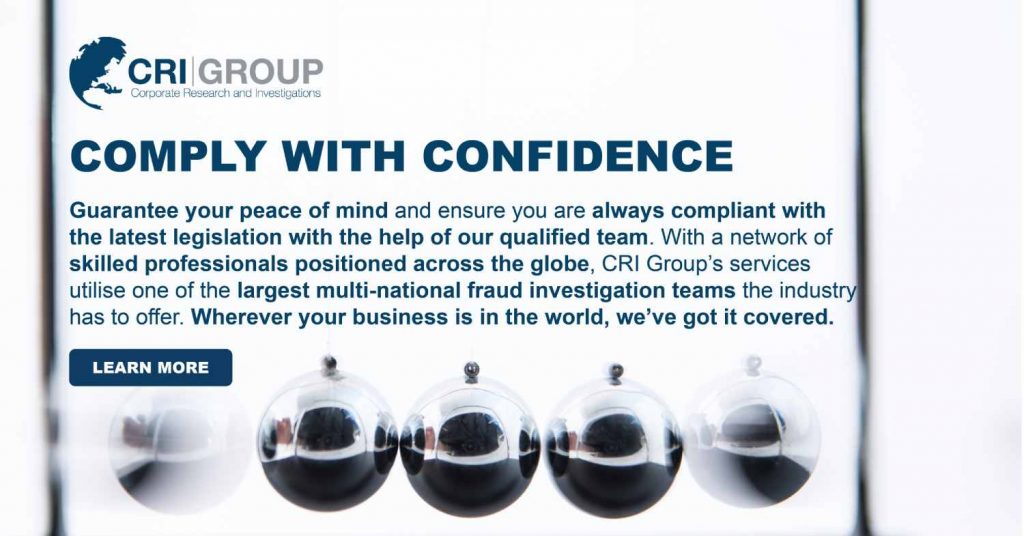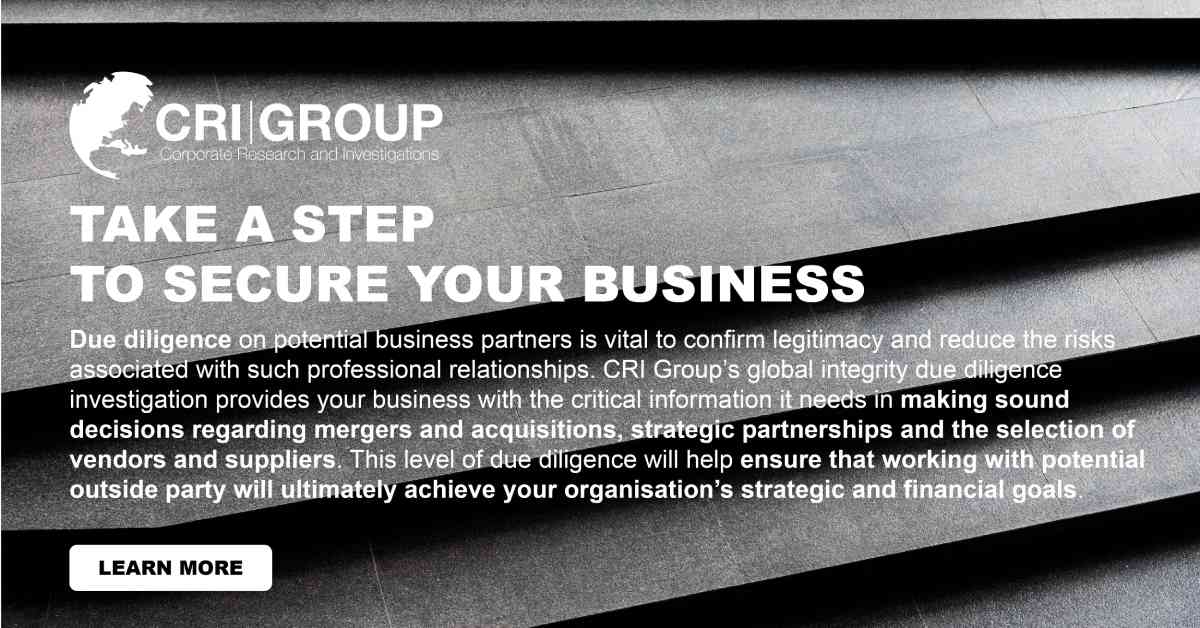Compliance is the lifeblood of your business, and the U.S. Department of Justice (DOJ) has just released game-changing guidelines that can make or break your success. Ignorance is no longer an excuse! In this blog post, we will delve into the DOJ’s updated compliance guidelines and shed light on what every business must know to ensure adherence.
We will explore the importance of compliance, highlight key elements of an effective compliance program, and emphasize the potential consequences of non-compliance. By understanding the guidelines and implementing robust compliance measures, businesses can protect themselves, mitigate risks, and demonstrate a commitment to ethical and responsible conduct.
Understanding the DOJ’s Updated Compliance Guidelines
Let’s explore the main themes of the DOJ’s updated compliance guidelines and shed light on crucial areas that businesses need to understand to ensure compliance excellence.
Element 1: Incentivizing Effective Compliance Programs
The DOJ’s guidelines place significant importance on companies maintaining effective compliance programs capable of identifying and mitigating misconduct. Notably, the “Compensation Structures and Consequence Management” section underwent significant changes. The guidelines introduce incentives for compliance and disincentives for compliance failures. Prosecutors will now monitor the effectiveness of compliance programs through tracking data on disciplinary actions and transparent communication. Additionally, a three-year Pilot Program on Compensation Initiatives and Clawbacks was introduced to further incentivize compliance.
Element 2: Resource Commitments and Information Sharing
The DOJ has made commitments to enhance corporate criminal enforcement by allocating additional resources. This includes the addition of 25 new prosecutors and substantial investments in the Bank Integrity Unit and Money Laundering and Asset Recovery Section. Furthermore, joint advisories with the Commerce and Treasury Departments will inform the private sector about enforcement trends and security-related compliance expectations. These efforts reflect the DOJ’s dedication to combating corporate crime and promoting compliance.
Element 3: Dynamic Risk Assessment and Continuous Learning
The DOJ emphasizes the significance of periodic risk assessments and the integration of lessons learned into compliance programs. The guidelines stress the need for continuous review and updating of risk assessments, policies, procedures, and controls. Evaluating the current nature of risk assessments and their responsiveness to new circumstances is a critical aspect of compliance. This ensures that compliance weaknesses and misconduct are effectively addressed and managed.
Element 4: Robust Policies, Procedures, and Employee Access
Strong compliance programs rely on robust codes of conduct, policies, and procedures. The DOJ highlights the importance of evaluating the accessibility of these policies and procedures for employees and relevant third parties. Companies should consider publishing policies in a searchable format to facilitate easy reference. Tracking access to policies allows companies to gauge their effectiveness and identify areas that require additional attention. This promotes widespread understanding and adherence to compliance guidelines.
Element 5: Tailored Training and Effective Communication
Tailored training and targeted communication are vital components of effective compliance programs. The DOJ expects companies to provide training sessions that are shorter and more focused, enabling employees to timely identify and raise compliance-related issues. The guidelines emphasize the importance of creating a process for employees to ask questions arising from the training. Addressing employees who may struggle with compliance knowledge is also crucial. The impact of training on employee behavior and operations should be measured to ensure its effectiveness.
Element 6: Whistleblowing System and Reporting Mechanisms
The DOJ recognizes the importance of a robust internal whistleblowing system and anonymous reporting mechanisms. Companies should ensure the existence of an anonymous reporting mechanism and publicize it to employees and third parties. The guidelines explore the measures taken to test employees’ awareness of the reporting mechanism and their comfort level in using it. Offering specialized reporting channels and user-friendly access fosters transparency and encourages reporting of potential compliance violations.
Element 7: Thorough Investigation and Testing
Thorough investigation of allegations and suspicions of misconduct is paramount. The DOJ expects companies to have well-resourced case management systems and processes that ensure comprehensive investigations. Evaluating the effectiveness of investigation processes, such as data collection, analysis, and the testing of compliance mechanisms, is crucial. Tracking investigation findings for patterns of misconduct and compliance weaknesses is essential for remedial actions and future risk mitigation.
The Implications of Non-Compliance: Legal and Financial Consequences
Understanding and adhering to the updated compliance guidelines issued by the US Department of Justice (DOJ) is crucial for businesses to avoid potential legal and financial ramifications. Failure to comply with these guidelines can lead to severe consequences. Let’s delve into the potential repercussions of non-compliance and examine real-world examples where businesses faced serious consequences due to their failure to comply with DOJ guidelines.
Legal Consequences:
-
Criminal Prosecution:
Non-compliant businesses may face criminal charges and prosecution by the DOJ. This can result in significant fines, penalties, and even imprisonment for individuals involved in the misconduct.
-
Damaged Reputation:
Non-compliance can tarnish a company’s reputation, leading to a loss of customer trust and loyalty. Negative publicity surrounding legal proceedings can have long-lasting effects on a company’s brand image and market position.
-
Regulatory Enforcement Actions:
Regulatory authorities may take enforcement actions against non-compliant businesses, including imposing fines, sanctions, or revoking licenses or permits. These actions can severely impact a company’s operations and profitability.
-
Civil Litigation:
Non-compliance can expose businesses to civil lawsuits from affected parties, such as customers, shareholders, or employees. Lawsuits can result in substantial financial settlements, damage awards, and legal expenses.
Financial Consequences:
-
Monetary Penalties:
Non-compliant businesses may be subject to hefty monetary penalties imposed by regulatory bodies or as a result of legal proceedings. These penalties can amount to millions or even billions of dollars, significantly impacting the financial stability of the organization.
-
Loss of Business Opportunities:
Non-compliance can lead to the loss of lucrative business contracts, partnerships, and opportunities. Other companies may be hesitant to engage with non-compliant entities due to the associated risks and potential damage to their own reputation.
-
Increased Compliance Costs:
Remediation efforts to address non-compliance issues can be financially burdensome. Businesses may need to invest in additional resources, technology, and personnel to strengthen their compliance programs and meet regulatory requirements.
Real-World Examples:
-
Volkswagen (VW) Emissions Scandal:
VW faced severe consequences after it was revealed that they manipulated emissions tests in their vehicles. The company faced billions of dollars in fines, legal settlements, and reputational damage, along with criminal charges against some executives.
-
Wells Fargo Unauthorized Accounts Scandal:
Wells Fargo faced significant legal and financial repercussions for opening millions of unauthorized customer accounts. The company paid substantial fines, faced lawsuits from affected customers, and experienced a decline in its stock value and customer base.
-
Theranos Fraud Case:
Theranos, a healthcare technology company, faced legal action after it was discovered that the company misrepresented its capabilities and the accuracy of its blood testing technology. The founder, Elizabeth Holmes, faced criminal charges, and the company ultimately dissolved, facing financial ruin.
How Businesses Can Avoid Consequences Of Non-Compliance?
When it comes to compliance with the US Department of Justice (DoJ) guidelines, businesses need a trusted partner to help them navigate the complex regulatory landscape and avoid the severe repercussions of non-compliance. CRI Group™ is that partner, offering a comprehensive suite of compliance solutions tailored to address the critical areas identified by the DoJ. Let’s explore how our services can assist businesses in mitigating the consequences of non-compliance:
Due Diligence Services:
We understand the importance of conducting thorough due diligence on potential business partners, vendors, and other third parties. Our due diligence services provide businesses with detailed insights and comprehensive background checks, helping them assess the integrity, reputation, and compliance track record of their counterparts. By identifying potential risks and red flags early on, businesses can make informed decisions and avoid partnerships that may lead to non-compliance issues.
Third-Party Risk Management:
The DoJ has consistently emphasized the importance of robust third-party risk management programs. In high-profile cases, businesses faced severe consequences when their partners engaged in illegal activities. CRI Group’s third-party risk management solutions help businesses evaluate, monitor, and mitigate risks throughout the entire partnership lifecycle. By implementing risk-based due diligence, ongoing monitoring, and clear contractual obligations, businesses can proactively manage compliance risks, detect potential misconduct, and take corrective actions before it’s too late.
Compliance Program Development:
A well-designed compliance program is essential for preventing and detecting non-compliance. The DoJ has highlighted the significance of having effective policies, procedures, and controls in place. CRI Group™ collaborates with businesses to develop and enhance their compliance programs, aligning them with the DoJ guidelines and best practices. Our experienced compliance professionals assess the company’s risk profile, design tailored frameworks, and implement robust compliance management systems. By building a culture of compliance and implementing comprehensive program elements, businesses can minimize the risk of non-compliance and demonstrate a proactive commitment to meeting regulatory expectations.
Compliance Training and Education:
Businesses that neglect to provide adequate compliance training to their employees often face severe consequences for their actions. CRI Group™ offers customized training programs that educate employees, management teams, and third parties on compliance requirements, ethical conduct, and regulatory obligations. Through interactive and engaging training sessions, businesses can foster a compliance-conscious workforce that understands the potential risks, knows how to navigate complex compliance situations, and promptly reports any concerns.
Compliance Auditing and Monitoring:
Regular auditing and monitoring of compliance activities are essential to ensure ongoing adherence to DoJ guidelines. CRI Group™ assists businesses in conducting independent compliance audits to evaluate the effectiveness of their programs, identify gaps or weaknesses, and implement corrective measures. Our monitoring services help businesses stay proactive by continuously assessing compliance performance and providing recommendations for improvement.
Continuous Regulatory Intelligence:
Staying updated on evolving regulatory requirements is crucial to maintain compliance. CRI Group™ provides continuous regulatory intelligence services, keeping businesses informed about changes in laws, regulations, and enforcement trends. By leveraging our expertise and timely insights, businesses can adapt their compliance programs and practices to remain in alignment with the DoJ guidelines and other relevant regulations.
Ending Note
In conclusion, the recent updates and clarifications provided by the US Department of Justice (DoJ) in their compliance program evaluation guidelines highlight the importance of a tailored and evolving approach to compliance. It is crucial for companies to understand and adapt to these policy changes to avoid the severe consequences of non-compliance. By implementing effective compliance programs that align with the key requirements outlined in the guide, businesses can proactively address misconduct and mitigate risks.
To mitigate the potential legal, financial, and reputational repercussions of non-compliance with the DoJ guidelines, we invite you to contact CRI Group™ today. Our experienced team will work closely with you to understand your unique circumstances, develop customized compliance solutions, and ensure that your business remains on the path of compliance excellence. Take the necessary steps to protect your company’s reputation and avoid non-compliance consequences by partnering with CRI Group™. Contact us now for a consultation and let us help you navigate the ever-changing compliance landscape.







